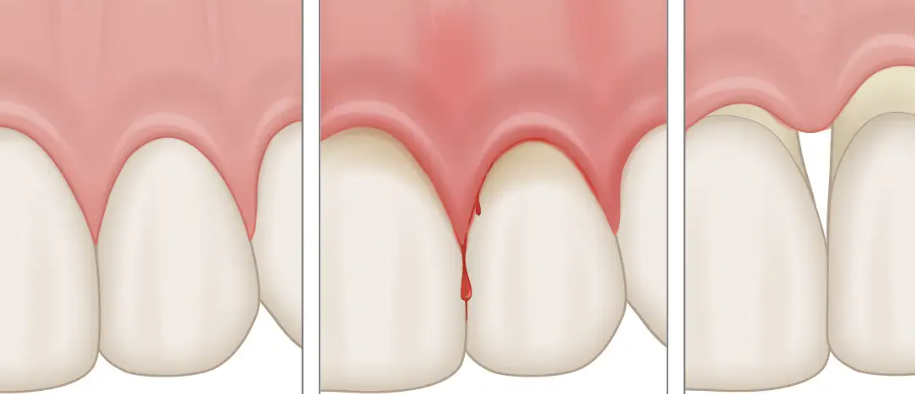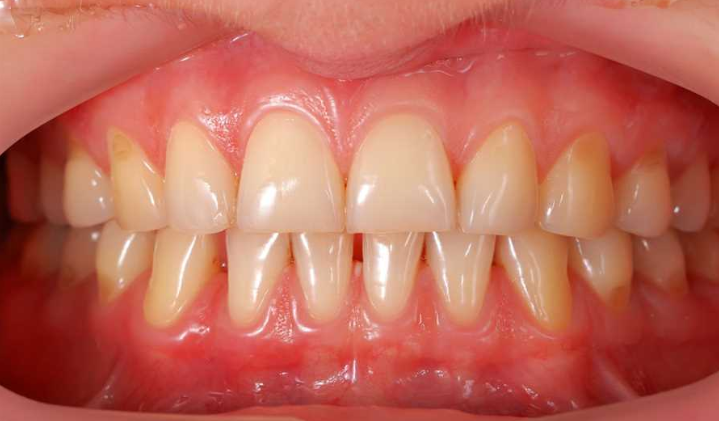Cancer is the uncontrolled and abnormal growth of cells. Gum cancer is the cancerous and uncontrolled growth of cells in the gums.
Gum cancer can start in the mouth and spread to other tissues. Therefore, it is important to detect it early and treat it early.
We have summarized 6 things you need to know about this type of cancer in our article under our headings. Happy reading!
1. What is Gum Cancer?

Gum cancer is the uncontrolled and abnormal growth of cells in the gum tissues. Starting inside the mouth, this cancer can progress and spread to other tissues.
Early detection and treatment of gum cancer are important as it can spread to other tissues from the mouth.
2. What are the Symptoms of Gum Cancer?
Gum cancer can manifest differently from person to person and can even occur without any symptoms. Therefore, regular check-ups with a doctor are crucial.
Symptoms of Gum Cancer include:
- Bleeding gums
- Swollen gums
- Changes in gum color
- Gum pain
- Gum recession
- Loose teeth
- Persistent swelling and sores inside the mouth
- Difficulty swallowing
- Swelling in the neck
- Ulcers
- Changes in voice
- Bad breath
These symptoms may indicate gum cancer, but they can also be present in other gum problems. Consult your dentist for a detailed examination if you notice these symptoms.
3. How is Gum Cancer Treated?
During the initial examination, if the dentist suspects cancer, a biopsy is performed to confirm the presence of cancerous cells.
The treatment of gum cancer varies depending on its stage. In the early stages, removal of cancerous tissue may be sufficient, while advanced stages may require chemotherapy or radiation therapy.
4. Difference Between Gum Cancer and Gum Inflammation

Gums can become sensitive and appear differently due to various reasons, ranging from vigorous brushing to inflammation.
Although there is no clear link between gum inflammation and cancer, some studies suggest that individuals with gum diseases may have a higher risk of developing gum cancer.
5. What Causes Gum Cancer?
The exact cause of gum cancer is not known, but there are some risk factors associated with it.
Risk factors for gum cancer include:
- Smoking and tobacco use
- Excessive alcohol consumption
- Poor oral hygiene
- Accumulation of dental plaque
- Gum diseases
Even if none of these factors are present and oral hygiene is maintained, gum cancer can still occur.
How to Prevent Gum Cancer?
Regular dental check-ups are the best way to prevent gum diseases and cancer. Early detection and treatment are crucial.
In addition, regular oral care, including proper brushing and flossing, is important. Avoiding harmful habits like smoking and tobacco products can also reduce the risk of these diseases.
If you have any concerns about your oral and dental health, feel free to contact us. Early diagnosis and treatment are crucial for all dental diseases.

 English
English Turkish
Turkish Deutsch
Deutsch العربية
العربية![[:en]6 Things You Need to Know About Gum Cancer[:tr]Diş Eti Kanseri Hakkında Bilmeniz Gereken 6 Şey[:de]6 Dinge, die Sie über Zahnfleischkrebs wissen müssen[:ar]6 أشياء يجب أن تعرفها عن سرطان اللثة[:] Diş Eti Kanseri](https://proestetik.com.tr/wp-content/uploads/2024/02/dis-eti-kanseri22.png)










